| Article ID | Journal | Published Year | Pages | File Type |
|---|---|---|---|---|
| 2010836 | Pharmacological Reports | 2011 | 7 Pages |
Preclinical data indicate the antidepressant activity of zinc and the involvement of the brain-derived neurotrophic factor (BDNF) in this mechanism. The present study investigates the effect of chronic (16 days) combined treatment with zinc (15 mg/kg zinc hydroaspartate) and imipramine (5 mg/kg) in chronic unpredictable stress (CUS) on the BDNF mRNA level in the rat brain. Moreover, serum zinc concentrations were also assessed. CUS induced a significant reduction in the BDNF mRNA level in the hippocampus by 21% but had no effect in the frontal cortex. Repeated treatment with zinc induced a significant increase in the BDNF mRNA level in the hippocampus in the unstressed animals by 12% and as in the chronically stressed animals by 14%, compared to the appropriate controls. Imipramine treatment did not affect this factor. However, combined treatment of zinc and imipramine induced a 12% elevation of the BDNF mRNA level in the stressed but not in the unstressed rats. CUS induced a 19% reduction in the serum zinc concentration, whereas combined treatment of zinc and imipramine reduced this concentration by 24% in the unstressed and increased it (by 20%) in the stressed animals. These results indicate that: 1) CUS induces a reduction in the BDNF gene expression with a concomitant diminution of serum zinc concentration and 2) the CUS-induced reduction in the BDNF gene expression is antagonized by chronic treatment with zinc.
